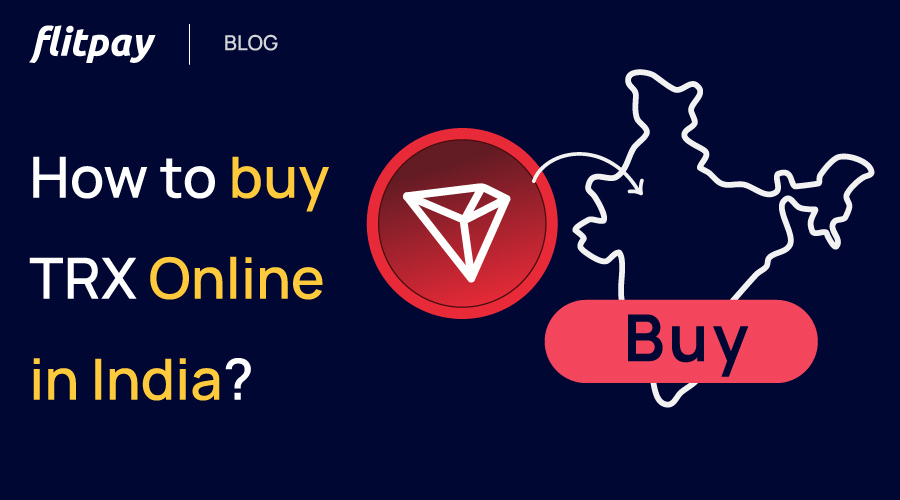Hardly a week goes by without new crypto scams hitting the headlines. A hundred crores of people’s money vanish into thin air, leaving them disillusioned and doubtful of the crypto legitimacy. Most of these scams thrive on the lack of awareness among innocent investors, luring them with promises of quick riches.
But enough is enough.
It's time to say no to being hoodwinked. It's time to learn about the crypto scams lurking out there.
If you are wondering how?
This blog is the answer. It will uncover all the tactics, red flags, and cautionary tales you need to know about crypto scams.
So, let’s start with 101 of knowing the Crypto scams.
What is a Crypto Scam?
A Crypto scam is a fraudulent crypto-centric scheme that deceives and defrauds individual or institutional investors. It usually benefits a single person or a group of people who lure people with unrealistic returns to send money to illegitimate sources and programs. Once the victim (s) transfers the funds to the scammer's address, the scammer disappears overnight. The fraudsters also often try to break into your confidential online wallets or accounts to send their digital assets to their addresses.
Since crypto is a comparatively new investment class with a complex underlying structure, it becomes an easy target for scammers as small investors need help distinguishing between legitimate and fraudulent crypto investments.
These Crypto scams occur in various ways. Some common ones are Ponzi Schemes, Fake Initial Coin offerings (ICOs), phishing websites, and fake cryptocurrency exchanges.
To save yourself and your friends from these crypto scams, it is important to understand how they get executed. So, let’s learn about them one by one.
Types of Crypto Scams
Here are the top 7 types of Crypto Scams gaining momentum these days:
Phishing Scams
Phishing is an “oldie but a goodie” scheme for fraudsters. Under this scam, scammers send malicious links to phoney websites and aim to access confidential account details like crypto keys, passwords, and OTPs to steal your funds. The scammers distribute these links via emails, private messages, or direct messages, often meticulously mimicking the appearance of official and trustworthy communications to avoid suspicion. They craft messages with a professional outlook, matching reputable sources such as banks or government agencies. It makes it less important for individuals to exercise caution and verify the authenticity of such messages.
For example, you may get an inbox message saying that your bank account will be blocked if you do not perform an online step through an attached link. They intentionally send urgent messages to make you act quickly, hoping you'll skip verifying the message source in a hurry to address the stated issue. Once you click the link and enter your confidential details, the scammers will use those details to withdraw funds from your account.
An incident of a phishing attack occurred when the film actor and producer Seth Green stated on Twitter that his 4 NFTs (a Bored Ape, two Mutant Apes, and a Doodle) got stolen from his wallet. It happened after he unknowingly fell for a phishing scam.
If it can happen with a celebrity like Seth, it can happen with anyone. Thus, it is better to take necessary precautions.
Tips to Avoid Phishing Scams:
- Don’t click unusual links before confirming the sender’s authentication, even when it seems urgent.
- Ensure that the URL you received has “HTTPS” in the beginning. If it does not have this extension, consider it a red flag and do not proceed further.
- Look for grammatical errors and misspelled words in the messages you receive from unknown numbers that look like official ones.
- Contact the institution directly if a message or investment claims that your funds are about to be frozen.
- Be suspicious of marketing messages that offer something too good to be true.
Investment Scams
Fraudsters employ more sophisticated tactics to trick users into voluntarily depositing funds into their addresses. To do so, they impersonate some experienced investment managers with a record of giving high returns to their clients. After gaining victims' trust, these scammers offer enticing investment opportunities to them. However, they ask for an upfront fee to begin. They then steal this upfront fee instead of investing on behalf of their clients.
The crooks sometimes ask for more money to give you better returns. But they never return your invested amount, let alone the profit. They often take the help of phoney celebrity endorsements to make their investment scheme look legit. They post fake advertisements or articles to make it appear like a trusted celebrity or source promoting their service.
Tips to Avoid Investment Scams:
- When any Crypto investment manager entices you with a “guaranteed” return, do not proceed further. Remember that crypto is highly risky. Hence, if anyone guarantees specific returns in it, they must be lying.
- Avoid investing money in any scheme that you do not understand. Always try to understand the plan first and invest only after you get a satisfactory answer.
- Any investment firm that is charging an unusual upfront fee can turn out to be a scammer. Thus, always do a background check of the firm before handing them money or asset access.
- Prefer to invest in crypto directly through legitimate platforms instead of relying on a third party.
Fake Cryptocurrency Scam
It is the most popular type of cryptocurrency scam at the current time. With dozens of new cryptocurrencies launching, the market also witnesses the emergence of fraudulent tokens. Crooks create and promote a token that is fraudulent and nonexistent. They come up with a token name and logo with some basic information to make it look like a legitimate new crypto project. Then, they create hype around it through various means, forums, and campaigns. They also create fake websites and whitepapers to gain the trust of potential investors. By claiming that the new token will have revolutionary features and a roadmap, they attract investments from unsuspecting investors.
Some of them organize ICOs (Initial Coin Offerings), which are advanced token sales by presenting fake narratives of the token reaching astronomic highs in the future. Once they collect funds in the name of investment in their fake tokens, they execute an exit plan by disappearing with the amount overnight, giving significant losses to the investors.
A few months ago, a similar fake token scam of over Rs 1000 crore was busted in Orissa, India. In the scam, over 1000 victims from different Indian states, like Rajasthan, Delhi, and Jharkhand, were encouraged to invest in STA (Solar techno alliance) tokens. It was launched in September 2021 with its own YouTube channel and an authentic-looking website to look legitimate and defraud people as a generic crypto token. Its social media accounts promoted it as a one-stop Solar Technologies service that uses blockchain to enable users to order anything they like from the nearest farmers. However, the token turned out to be fake in the end.
Just like fake crypto tokens, fake cryptocurrency exchanges also exist. These exchanges often advertise blue-chip cryptocurrencies like Bitcoin and Ethereum at a below-market price to attract investors. But they vanish once you buy from them and try to withdraw your funds. Such products are built with codes that prevent users from selling them after a specific time.
Scams that involve con artists boosting up a new crypto project, new NFT, new coin, or new exchange to get money and then run away are also called Rug pulls.
One famous example of a rug pull scam is the SQUID coin. It is a cryptocurrency inspired by the popular South Korean Netflix series Squid Games. The token’s valuation hit over $90 per coin with the show's popularity. Its advertisers popularised it as a “play-to-earn” crypto. However, after some time, the traders could not sell their SQUID tokens, and hence, the token plummeted nearly to zero. The scammers who created the token collected $ 3 million before vanishing. Such rug pulls are also common in NFT space.
Tips to Avoid Fake Cryptocurrency Scams:
- Do a thorough research about the project. Check its use cases, tokenomics, partnerships, roadmap, and other technological aspects. If you find anything gimmicky or senseless, avoid investing in them.
- A strong team behind any crypto project is a positive sign of a good crypto project. Thus, ensure that the team behind the token has accessible social media profiles and activity. If the details of the team are insufficient, you should see it as a red flag.
- Do not invest in any crypto project without reading the whitepaper that provides in-depth details about it. Look for grammatical errors, spelling mistakes, plagiarism, copied tech, and overuse of technical jargon and consider them red flags.
- You can also consider an exchange listing of the coins to check their validity. Since most prominent exchanges perform strict inspections before listing a new token, it is an excellent measure to gauge the validity of the suspicious tokens.
Social Media Scams
Social media is also becoming a key source of crypto scams these years. With the facility to DM anyone and access a large audience across the globe, bad actors have come up with a well-developed social media plan to deceive people into crypto scams. One classic method to attract funds into crypto scams on social media is Giveaways.
These giveaways promise the participants to double or even triple their funds if they deposit them into a designated wallet address. Of course, that does not happen, and the organizer runs away with the funds. Notably, some legitimate giveaways exist on social media but do not guarantee double returns for their participants.
Another popular social media tactic of scammers is to pretend to be verified influencers and contact naive people to invest in their plans. Since anyone can get the official blue ticks on Twitter and Instagram by paying a few dollars, such fraudsters have risen immensely in number.>
A fresh example of con artists pretending to be legitimate investors is the “.eth” extension that is widely used on Twitter. For those who do not know about this extension, it is the Ethereum domain name that many famous Ethereum developers add to their usernames to show their support for the project. Many inexperienced investors consider this extension a golden standard for the legitimacy of a Twitter account, but this is not the case. Scammers often utilize this extension to establish credibility and defraud investors.
Comments and DMs are also two ways scammers perform their evil plans. By putting a phishing link in their well-crafted comments and DMs, the fraudsters try to access the user's confidential information to steal their funds.
One such scam instance is what happened with an Indian guy, Vivan D’Souza. He received a DM on Instagram from a supposed crypto expert, who asked Vivan to invest Rs 10,000 in a well-known crypto exchange. After talking for a few days, Vivan sent the money to the scammer’s given website, and he realized that it was a fake website, imitating the real one. But till then, he lost his investment and did not get any token in return.
In other Instagram crypto scams, the crooks often hack the websites of your close friends to impersonate them while chatting with you. Since people already trust their friends, they usually skip the need to verify the nitty gritty details of the investment plan and send them the money. Moreover, with the development of AI, scammers have become better at impersonating anyone in video calls and audio clips, too. It makes the victims even more challenging to filter out scammers. Such scams have become very common, requiring people to be extremely cautious of any comments or DMs they receive.
Tips to Avoid Social Media Cryptocurrency Scams:
- Always Google search the investment plan anyone offers, be it someone you know or some strangers. If you do not find any such program, immediately report their account and complain about them on cyber security portals.
- Look for details like spelling mistakes, grammatical errors, and follower counts to check the legitimacy of accounts.
- Instagram scammers often keep their posts' comments off to maintain their reputation. Thus, if the comments are off on their profile, report and block them.
- Do not comment on any unofficial link you see in comments or receive in DMs. These links are often the phishing links that scammers send to hack your account.
Romance Crypto Scams
Dating sites are also not safe from crypto scams. Scammers often use these romance-centric sites to gain the trust of emotionally vulnerable people. They set up fake profiles on such sites and social media platforms to start conversations with you. Once they gain your trust, they redirect the conversations to investing in crypto and other digital assets. They often show fake passive returns to convince you to invest in their crafted investments. After you send money to their shared links or websites, they disappear and block you from everywhere. Such scams are also known as “pig butchering scams” because they are similar to fattening a pig before butchering.
According to the Federal Trade Commission (FTC), approximately 20% of money in cryptocurrency has been lost in romance scams since October 2020.
One reported incident of romance crypto scams was from Minnesota, where a resident of Eden Prairie disclosed that he lost $9.2 million after falling for a typical crypto romance fraud. The man started to chat with a stranger woman on LinkedIn who convinced him to invest in a gimmicky crypto project, Coinrule-Web3. The woman convinced the man that this investment would help the man generate funds that could help him abandon his wife and run away with her. Hundreds of millions of funds are being lost yearly in such romance scams.
Tips to Avoid Romance Cryptocurrency Scams:
- Don’t share personal details with a stranger you met online until you trust them enough.
- Be careful of the people you connect with on online dating sites, as they may become scammers.
- Don’t send money to anyone you’ve met online, no matter how convincing their story sounds.
- The scammers involved in romance scams often ignore meeting their victims in real life. Thus, if someone does so, take it as a red flag.
- Always chat on messaging platforms that do not allow the deletion of messages so that you can have proof of a scammer asking you to invest in some fraudulent scheme.
Employment Crypto Scams
Scammers take advantage of your emotional vulnerability in romance scams and do the same with your financial situation. The con artists impersonate recruiters to defraud those desperately looking for jobs to make ends meet. They offer fake high-paying jobs to people who require crypto payments for initial job training or commission. Sometimes, they also send assessment documents with malicious links to job applicants. When the applicant clicks on these malicious links, the scammers get access to the crypto accounts and wallets of these applicants.
The scammers might say that they are from Amazon, Microsoft, FedEx, or some other reputed business to make their offer enticing and convincing. Then, in the hiring process, they ask you to make some upfront crypto payment as a part of the recruitment process. They often draw out unnecessary flaws in your resume to convince you to pay money as compensation.
A few months ago, Delhi police arrested three individuals for operating a fraudulent work-from-home job scheme that offered attractive crypto funds to candidates for increasing “likes” on some YouTube videos. Their fraudulent scheme amounted to over Rs 5 crore in only six days.
These perpetrators gained the victims' trust by transferring a small initial incentive to their accounts as promised. But then they convinced many of their targets to deposit additional money in some wallets to boost their earnings. Once the victims did so, the scammers ran away with the money.
Tips to Avoid Employment Cryptocurrency Scams:
- No legitimate business asks for crypto payments to hire individuals. Thus, if some recruiter asks you to make any payment, know that it is a scam.
- Verify the source and website before participating in any hiring process. If someone contacts you on LinkedIn for a job opportunity, you can verify their legitimacy by visiting their profiles.
- Ask questions about the company and the job description. Since scammers only pretend to be recruiters, they often hesitate to answer relevant questions.
- Take the advice of your friends if you have any doubts about any recruiter and their way of hiring.
- Do not let your financial vulnerability cloud your judgments.
Blackmail & Extortion Crypto Scams
Fear is a potent weapon often used by scammers to manipulate and exploit individuals. They cunningly forward fabricated evidence to people of their visits to adult websites or illicit web pages, blackmailing them to expose it to the public. With the advent of AI, scammers also create deep fake videos and images of people to extort their crypto funds. Due to the fear of their compromising photos and videos getting public, and damaging their reputation, people often fulfil the demands made by the scammers.
If you face any such encounter, do not hesitate to report the culprits to cyber security portals and local police. Remember that you are not alone in facing such a situation, and resources are available to help you navigate it. Seek support from friends, family, professionals, and law enforcement to address the issue and protect your rights and privacy.
Tips to Avoid Blackmail & Extortion Crypto Scam:
- Do not give in to the demands of the scammer. Resist your urge to pay the blackmailer as it does not guarantee that they won’t use the images or videos against you after receiving the funds.
- Take screenshots of all the conversations you have with the scammer. These will serve as crucial information when you seek legal advice on the issue.
- Block the blackmailer from all your social media accounts and cut off all the forms of communication they can use to connect to you.
- Report to Law Enforcement institutions or cybercrime divisions to report about the issue. Provide them with all the evidence you have collected.
- If the blackmail happens through a social media platform or website, report the user to the administrator. They may be able to take action against the blackmailer.
- Educate Yourself by learning about online safety and be cautious about sharing intimate photos or videos online or with anyone to avoid similar situations.
FAQs
How to report a crypto scam in India?
Reporting a crypto scam is a multi-step process. You should file a complaint at your local police station, providing them with all relevant information about the scam. You can also file a complaint to the National Cyber Crime reporting portal through its official website, https://cybercrime.gov.in. Also, attach all the evidence you have with the complaint.
How do you identify a crypto scam?
Some signs can help you identify a crypto scam. If any crypto investment looks too good to be true, it will likely be a scam. If any job recruiter asks for money as a part of hiring, it can also be a scam. If someone contacts you on social media out of the blue and suggests some crypto investment plan with “guaranteed” returns, it is also usually a scam.
How to avoid crypto scams?
You can avoid crypto scams only by being cautious. Investigate thoroughly before investing in any cryptocurrency, and use only trusted platforms to execute the trade. Activate two-factor authentication (2FA) and secure your private keys. Additionally, beware of unrealistic Promises and guaranteed returns. Lastly, keep yourself informed about common crypto scams.
How to protect yourself from crypto scams?
Here is a complete guide to protect yourself from crypto scams.





